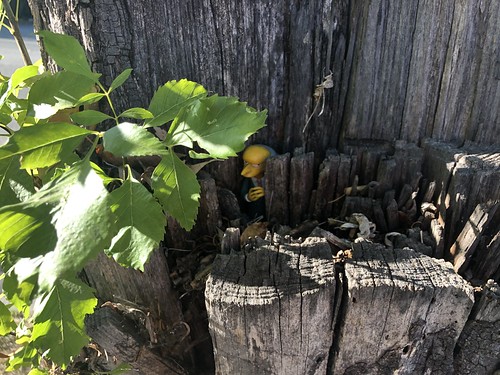
It’s a strange feeling to account for my time in a year that was anything but ordinary. Like everyone, this was a disruptive year and that fact is not represented by my scholarly output this year. Academic work takes a lot of time and so my 2020 appears to be business as normal when all of us know that wasn’t the case. That preamble aside, below are the main themes of the work I produced this year. (My roundup of work from previous years can be found here: 2019, 2018.)
Sprinkled throughout 2020, several books that I co-authored or edited were published. These have the distinction of making me look tremendously productive in a year when all of us were juggling way too many things that were more important than “work.” Books are multi-year affairs and the brunt of the writing on these books was done pre-pandemic. That being said, I’m proud of the work my colleagues and friends have led:
- With Great Power Comes Great Pedagogy: Teaching, Learning, and Comics (with Susan Kirtley and Peter Carlson)
- Playing with Teaching: Considerations for Implementing Gaming Literacies in the Classroom and Studying Gaming Literacies: Theories to Inform Classroom Practice (both with Jennifer Dail and Shelbie Witte)
- Everyday Advocacy: Teachers Who Change the Literacy Narrative (with Cathy Fleischer)
And out in the early months of 2021 (but the page proofs have been reviewed at this point, so I’m chalking them up here):
- Annotation (with Remi Kalir)
- Compose Our World: Project-Based Learning in Secondary English Language Arts (with Alison Boardman, Bridget Dalton, Joseph Polman, and many amazing chapter contributors)
As lengthy projects, these books represent key areas of my work, particularly focused on English Language Arts and expansive forms of literacies. I am overdue to write up lengthier posts on a couple of these projects and I will be playing catch up in 2021. The other main projects I worked on are below.
(Speculative) Civic Literacy Practices
It should come as no surprise that civic literacy practices—for teachers and students—continue to be a central focus of the work that I do. Particularly in work with Nicole Mirra, we have been exploring speculative (ahem) dimensions of civic literacies to push our field forward. Recent work in the Harvard Educational Review, Urban Education, and other forthcoming pieces illuminate new directions that civics-focused scholarship must explore. Likewise, work analyzing the 2016 Letters to the Next President project still continues and I’ve been supporting the work led by Lynne Zummo and Emma Gargroetzi specifically looking at youth perspectives on climate change and quantitative civic reasoning.
Methods and Definitions
Slightly less easy to categorize, a couple of the articles I worked on this year focus on challenging base assumptions in critical educational research. Nicole and I spent a bunch of time pre-2020 reading and analyzing classroom-based studies that describe “21st Century” learning to see what our field actually means by this term, two decades into the period being described. Our findings suggest folks are all over the map when it comes to this label and I encourage researchers, educators, and policy makers to take a step back from a label that doesn’t really mean much.
Earlier this month, an essay based on my 2019 Jan Hawkins address was published in Equity and Excellence in Education. The article is a broad argument about how our approaches to critical research can fall short across three different dimensions. I weave together a handful of personal experiences from my work and biographical information about Prince. It was a fun piece to write and I think it feels even more relevant as we look toward 2021 in light of a terrible year. Here’s an illuminative figure from the article:
Healing and Care
I continue to think about and push for an emphasis on how educators address healing needs in schools and classrooms. With Mandie Dunn, I wrote a bit about how teachers’ grieving shaped ELA teaching practices. And Aaron Guggenheim, Kristina Stamatis, Bridget Dalton, and I explored how care is tied to everyday, political contexts that are always present in today’s classrooms.
Digital
Finally, it is not a surprise that I spent a bunch of time this year pushing on our conceptions of the role of digital technology. Like civics, this is a central aspect of my literacies-focused work and articles like these two chapters and this classroom-focused study continue my exploration of how our assumptions of technology sell short the analog needs and ingenuity of teachers and students.
While much of the writing above didn’t shift as a result of Covid-19 or with the upswell in overdue attention toward legacies of anti-blackness in the U.S., the themes of much of my work are well-suited for guiding practice right now. Nicole and I have written a couple OpEds this year with increasingly obvious directions that schools need to move toward:
- the civic lessons of this present moment demand necessary engagement in classrooms; and
- teachers and students have not been given time or support for addressing feelings of loss and grief overtaking the world right now.
I should also note that, just as much of this output began pre-2020, this year has seen substantial pivots in the research I am focusing on. Essentially, my active research pivoted to understanding and supporting teachers, students, and school systems in light of the multiple catastrophes shaping student learning right now. Unsurprisingly, this work will show up in another year’s post. Finally, most of the published work I’ve contributed to this field can be found on Google Scholar. If you are ever unable to access something I’ve worked on, please reach out. See you in 2021.
